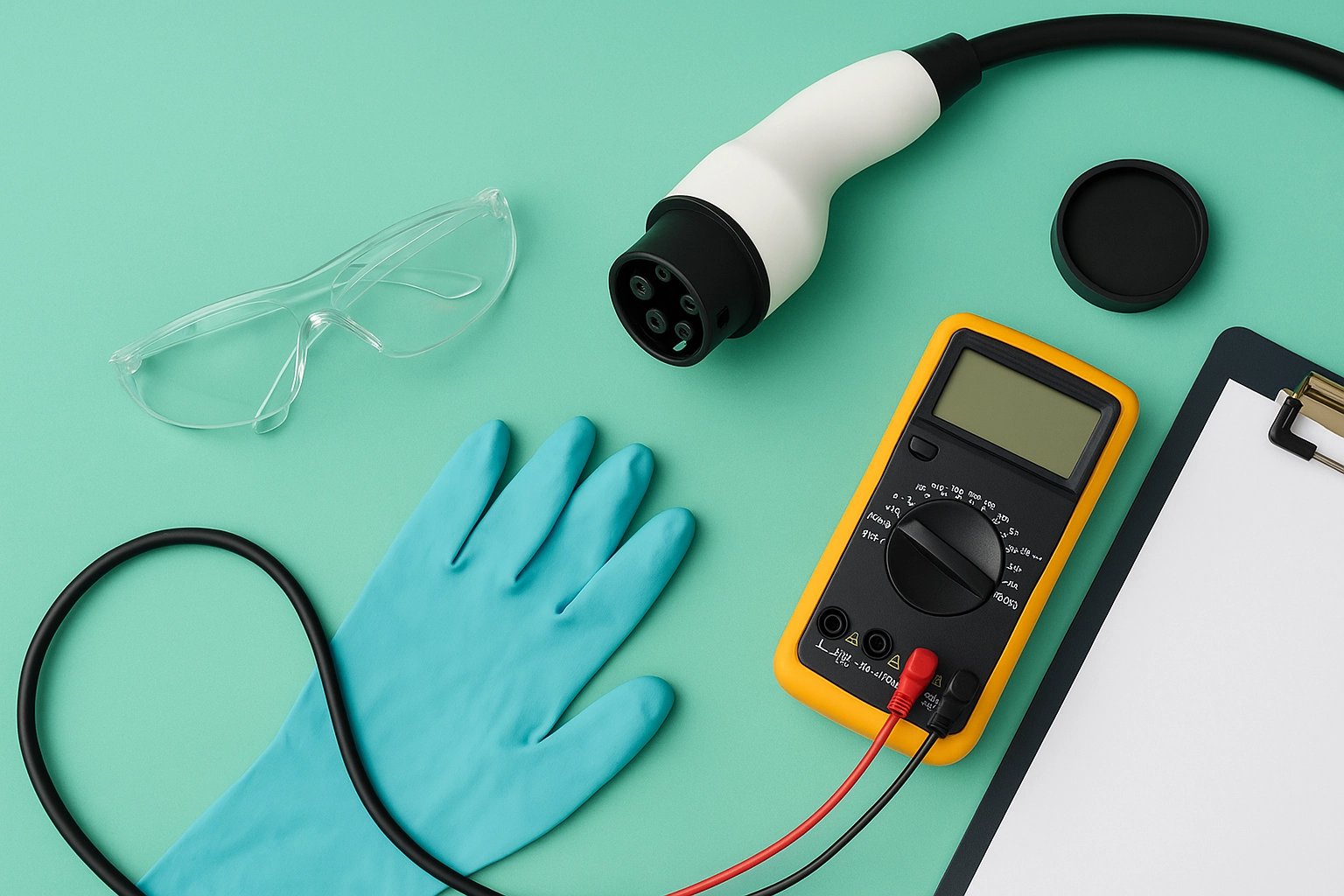GB T 27930 EV Communication Protocol Testing
The GB/T 27930 standard defines a communication protocol that allows for the safe and efficient charging of electric vehicles (EVs) using alternating current (AC). This protocol is crucial for ensuring interoperability between different charging systems, which in turn supports widespread adoption of electric vehicles. The protocol enables real-time data exchange between the EV and the charging station, facilitating features such as billing, authentication, and status updates.
The testing process for compliance with GB/T 27930 involves several key aspects that ensure the safety and reliability of the communication system. The first step is to perform a comprehensive review of the manufacturer's documentation to understand the hardware configuration and software implementation. This includes examining the charging station's control unit, communication interfaces, and any associated firmware.
The next phase focuses on simulating real-world conditions under which the EV will operate. This involves setting up a controlled environment where the charging station can communicate with an EV using various modes of operation as specified in GB/T 27930. The testing covers multiple scenarios such as connection, identification, authentication, transaction initiation, and status updates.
During this process, we use specialized equipment that adheres to international standards like ISO/IEC 15846 for communication protocols. Our state-of-the-art laboratory ensures precise measurement and analysis of all parameters involved in the communication process. We employ rigorous quality control measures to ensure every aspect of the protocol is thoroughly tested.
Compliance with GB/T 27930 also requires testing under different environmental conditions, including temperature variations and humidity levels, which are common in outdoor charging stations. Our facilities are equipped to replicate these environments accurately so that the performance of the communication system can be assessed effectively.
The results from our tests not only help manufacturers achieve compliance with GB/T 27930 but also provide valuable insights into potential improvements and optimizations needed for future products. By adhering strictly to this protocol, we contribute significantly to enhancing user experience and safety standards in EV charging systems worldwide.
Scope and Methodology
| Test Scenario | Description | Method Used |
|---|---|---|
| Connection Test | Evaluates the initial connection between the EV and charging station. | Automated testing software complying with ISO/IEC 15846 standards. |
| Identification Test | Determines whether both parties can correctly identify each other during communication. | Custom-built hardware interfacing with the charging station and EV. |
| Authentication Test | Verifies that only authorized vehicles are allowed to use specific charging stations. | Advanced cryptographic algorithms validated against GB/T 27930 specifications. |
| Transaction Initiation Test | Ensures proper start-up procedures for charging transactions. | Real-time monitoring tools interfaced with the charging system’s control unit. |
| Status Update Test | Checks the accuracy of information exchanged about the charging process. | Data logging systems recording all communication exchanges between EV and station. |
Industry Applications
The GB/T 27930 protocol finds extensive application across various sectors within the automotive industry. It is particularly important for Original Equipment Manufacturers (OEMs) looking to integrate charging solutions into their vehicle designs seamlessly. Compliance with this standard ensures that EVs can connect effortlessly with public and private charging networks.
For operators of commercial charging facilities, adherence to GB/T 27930 facilitates better management of resources by enabling efficient scheduling and tracking of usage patterns. This not only enhances operational efficiency but also helps in cost optimization through intelligent billing mechanisms based on actual consumption data.
The protocol supports the development of smart grids capable of managing large numbers of connected EVs simultaneously without causing overload issues. By leveraging real-time communication capabilities, grid operators can dynamically adjust supply and demand to maintain balance within their networks.
In addition, GB/T 27930 plays a vital role in supporting the growth of electric fleets for companies operating buses, taxis, delivery vans, etc., by providing standardized interfaces that simplify installation and maintenance tasks. This reduces downtime associated with proprietary systems while promoting interoperability among diverse fleet management solutions.
Environmental and Sustainability Contributions
- Reduces Carbon Footprint: By supporting the widespread adoption of electric vehicles, GB/T 27930 helps decrease reliance on fossil fuels for transportation, thereby reducing greenhouse gas emissions.
- Promotes Renewable Energy Integration: With increasing deployment of renewable energy sources like solar and wind power, ensuring interoperability through standards such as GB/T 27930 allows more efficient utilization of these clean energy resources in EV charging networks.
- Encourages Circular Economy Practices: Properly designed charging protocols facilitate extended product life cycles for both vehicles and chargers, encouraging reuse over disposal. This aligns closely with principles promoting sustainable development goals.
- Supports Urban Planning: Standardized communication ensures that urban planners can design infrastructure supporting EV mobility more effectively, reducing congestion and improving air quality in cities.





